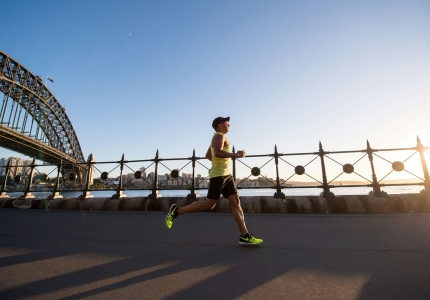Burnout is a growing problem in today's fast-paced society, impacting people in all areas of life and professions. Burnout is defined as a state of emotional, bodily, and mental exhaustion induced by continuous stress and overwork, and it can have major consequences for one's health and productivity. Recognizing the signs and symptoms of burnout is critical for properly treating it. In this post, we'll look at how to recover from burnout through nine effective self-care tips and strategies to relax and disengage, thereby aiding in recovery and rejuvenation.
Recognizing Burnout
Burnout is characterized by continuous exhaustion, a lack of motivation, cynicism, and diminished performance. According to current research, burnout affects a sizable proportion of the worldwide workforce, resulting in higher absenteeism, lower job satisfaction, and even long-term health problems. Acknowledging burnout is the first step towards recovery because it helps people to seek help and make the necessary changes to restore balance in their lives.
The Connection Between Relaxation and Burnout Recovery
Relaxation techniques work as potent antidotes to the stress and fatigue that come with burnout. Deep breathing, meditation, and progressive muscle relaxation are all techniques that can activate the body's natural relaxation response, enhancing physical wellbeing, emotional regulation, and mental health. This transition from a state of chronic stress to one of relaxation not only helps to ease burnout symptoms, but it also promotes resilience, allowing people to deal better with future stressors. Furthermore, relaxing gives a much-needed respite from the constant pressures of daily life, providing periods of quiet and rejuvenation that are necessary for preserving balance and vitality.
9 Ways to Recover from Burnout
Learning how to recover from burnout requires a holistic approach that considers both mental and physical health. Here are nine effective techniques and self-care tips to relax and disconnect, each giving unique benefits for avoiding burnout and improving overall health and happiness:
Mindful Meditation
Mindfulness meditation can assist to relax the mind, reduce tension, and increase attention. Simple breathing exercises and guided meditation sessions can be incorporated into daily routines to help you relax.
Spa Treatments
Massages, facials, and aromatherapy are all spa treatments that can help you relax and reduce stress. These exquisite experiences can help to refresh both the body and the mind.
Nature Retreats
Spending time in nature has been proved to offer several health advantages, such as stress reduction and mood enhancement. Retreats in natural settings provide an excellent opportunity to disengage from daily worries and reconnect with the beauty of the outdoors.
Digital Detox
Unplugging from screens and technology is crucial for mental health when considering how to recover from burnout. Set aside time to unplug from electronics and engage in activities that promote relaxation and connection with others.
Yoga and Exercise
Physical activity is an effective stress-reduction and relaxing technique. Yoga, in example, mixes movement and awareness, making it a great way to manage burnout symptoms.
Art and Creativity
An often not mentioned idea when giving self-care tips is painting, writing, or performing music can all be used to express oneself and relieve stress. These activities allow people to express their inner creativity while also finding joy in the process, whether on their own or accompanied by a loved someone.
Quality Sleep
Prioritizing sleep is critical when considering how to recover from burnout. Aim for seven to nine hours of quality sleep per night to allow your body and mind to recover and replenish completely.
Healthy Eating
Nutrition is important for managing stress and maintaining energy levels and improving the immune system. Consume a balanced diet rich in nutritious foods to energize your body and promote overall health.
Social Connections
Developing genuine social connections is critical for overcoming feelings of loneliness and exhaustion. Spend time with friends and loved ones who provide support and encouragement and make it a priority to nurture these relationships.
Combining Techniques for Maximum Effect
Individuals can tailor their relaxation and healing regimen by combining approaches that appeal to them uniquely. For example, integrating mindful meditation with yoga and nature retreats can provide a comprehensive approach to burnout treatment that addresses both mental and physical well-being.
When considering how to recover from burnout, you must take a proactive attitude to prioritize self-care and relaxation. Individuals can take control of their well-being and achieve balance in today's fast-paced society by identifying the indications of burnout and adopting relaxing practices into their everyday lives. Remember to prioritize self-care and set aside time for activities that encourage relaxation and renewal. Your health and happiness are worthwhile.



